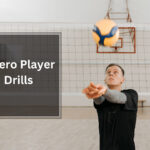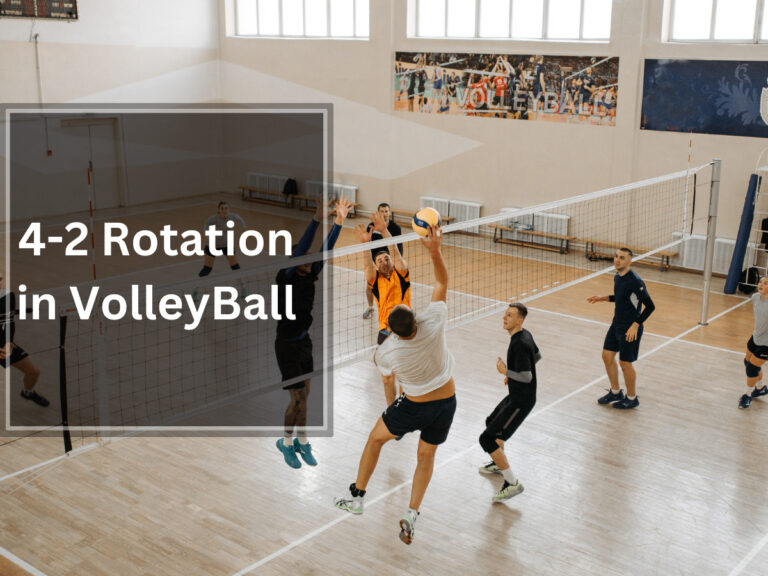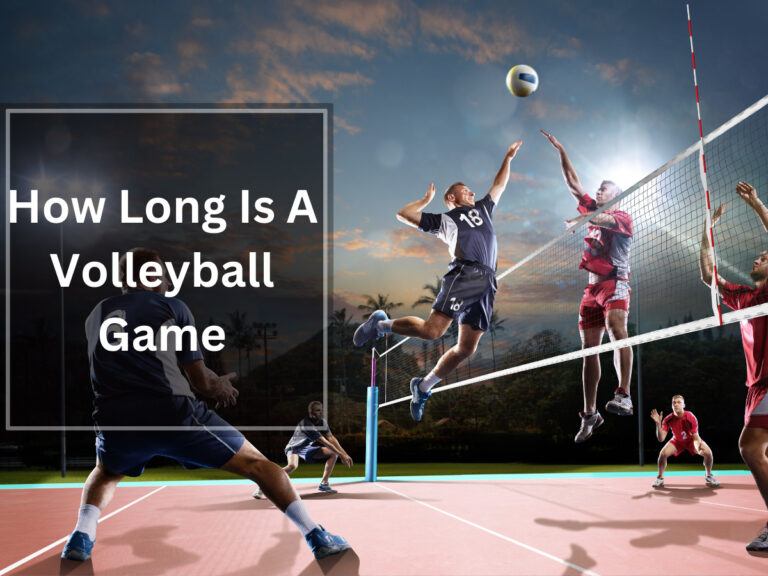What Does Ds Stand for in Volleyball

Do you ever wonder what the DS stands for in volleyball? Well, get ready to dive into the world of Defensive Specialists.
These players, known for their quick reflexes and strategic thinking, play a crucial role in keeping the defense organized and preventing the opposing team from scoring points. From protecting teammates to impeding the progress of the opposition, DS players are like the fearless guardians on the court.
In this article, we’ll explore everything you need to know about what it means to be a DS in volleyball. So, let’s serve up some knowledge and discover what makes these players so essential to the game!
Table of Contents
The Definition of DS in Volleyball
DS stands for Defensive Specialist in volleyball. They are known for their exceptional defensive skills and agility. The role of a DS in team strategy is crucial. They help keep the defense organized and prevent the opposing team from scoring points.
In international play, DS players typically occupy back row positions. They use their quick reflexes and strategic thinking to impede the progress of the opposing team. While their primary focus is on defense, DS players also have offensive capabilities such as spiking from the back row.
Playing as a DS can be challenging due to the high demands of quick reactions and effective communication. However, it is also rewarding when they contribute to winning games for their team. Overall, being a DS requires dedication, skill development, and a deep understanding of both defensive and offensive aspects of the game.
Origins and Evolution of the DS Position
The position known as the DS in volleyball has evolved over time to become an integral part of the game. This evolution has had a significant impact on the sport, with modern techniques and strategies incorporating the DS in both international play and American volleyball.
Here are three key aspects to consider:
Evolutionary Impact: The introduction of the DS position has revolutionized defensive play in volleyball, allowing teams to have specialized players dedicated to maintaining a strong defense. This has greatly improved the overall level of play and competitiveness in the sport.
Modern Techniques: As the game has progressed, so have the techniques utilized by DS players. They now possess advanced skills such as quick reflexes, strategic thinking, and excellent passing ability. These skills enable them to effectively receive and control the ball, setting up their team for successful offensive plays.
Team Strategy: Including a DS player in team strategy provides added defensive support, especially when playing against powerful opponents. Their presence allows for improved organization and prevents the opposing team from scoring crucial points. This strategic advantage can often be the difference between winning and losing a match.
The DS position continues to evolve and make a significant impact on the game of volleyball at all levels of play. Its importance cannot be understated, as it has fundamentally changed the way the sport is played and has contributed to the overall growth and development of volleyball worldwide.
Key Responsibilities of a DS Player
A DS player’s primary responsibility is to provide solid defense and reliable passing for the team. As a DS player, your role on the volleyball court is crucial in maintaining a strong defensive line and ensuring accurate passes to initiate offensive plays.
Your defensive skills are vital in preventing the opposing team from scoring points and protecting your teammates. However, being a DS player comes with its challenges. Quick reflexes and strategic thinking are essential to win games for your team.
Effective communication and teamwork are also important aspects of your role, as they facilitate coordination with other players on the court. By fulfilling these responsibilities, you contribute significantly to the overall success of your team in achieving victory.
DS Techniques and Skills in Volleyball
Being quick and agile is essential for a DS player to effectively execute defensive techniques in volleyball. To excel as a DS player, you need to master various skills and strategies. Here are three important aspects of being a successful DS player:
Defensive Techniques: As a DS player, your primary role is to provide solid defense for your team. This involves mastering techniques such as digging, sprawling, and diving to save the ball from hitting the ground.
Passing Skills: Another crucial skill for a DS player is accurate passing. You must be able to receive serves with precision and make reliable passes to initiate offensive plays.
Court Positioning and Communication: Proper court positioning allows you to anticipate the opponent’s attacks and make effective defensive moves. Additionally, communication skills are vital for coordinating with your teammates and ensuring seamless defensive play.
Training and Conditioning for DS Players
To excel as a DS player, you’ll need to focus on training and conditioning your body. Drills, strength training, defensive positioning, communication skills, and agility exercises are all crucial components of becoming a successful DS player.
Firstly, drills are essential for improving your skills as a DS. Practicing double feeder passing and passing to dive will enhance your ability to make accurate passes under pressure. Back row hitting drills will help you develop the necessary power and technique for effective attacks from the back row.
Secondly, strength training is important for building the physicality required in the DS position. Working on exercises that target your core, legs, and upper body strength will improve your speed and explosiveness on the court.
Defensive positioning is another key aspect of being a strong DS player. Learning how to read the opponent’s attack patterns and anticipating their moves will allow you to be in the right place at the right time to make successful defensive plays.
Communication skills are vital for effective teamwork as a DS player. Clear and concise communication with your teammates will ensure everyone is on the same page defensively and allow for better coordination during matches.
Lastly, agility exercises will help you improve your quickness and reaction time on defense. Incorporating ladder drills or cone drills into your training routine can enhance your footwork and overall agility.
Strategies and Tactics for DS Players
So you’ve been training and conditioning to become a Defensive Specialist (DS) in volleyball. Now it’s time to dive into the strategies and tactics that will help you excel in this position.
As a DS player, communication is key. You need to constantly communicate with your teammates, letting them know where you are on the court and what you’re seeing from the opposing team.
Positioning is also crucial for a DS player. Make sure you’re always in the right place at the right time to make defensive plays and keep the ball in play.
Teamwork is essential as well, as you’ll be working closely with your teammates to defend against attacks and make quick decisions on how to respond.
Lastly, decision making and defensive strategies are what set apart great DS players from good ones. Anticipate where the opposing team might attack and adjust your positioning accordingly. Stay focused, read their hitters’ movements, and make split-second decisions on whether to dig or block.
With these strategies in mind, you’ll be well-equipped to shine as a DS player on the volleyball court.
1) Communication: Constantly communicate with your teammates about positioning and observations of the opposing team.
2) Positioning: Always be in the right place at the right time to make defensive plays.
3) Teamwork: Work closely with your teammates to defend against attacks and make quick decisions together.
Keywords: DS player communication, DS player positioning, DS player teamwork, DS player decision making, DS player defensive strategies
DS Vs. Libero: Understanding the Differences
Understand the differences between a DS and a Libero, as they have distinct roles and responsibilities on the volleyball court.
The DS, or Defensive Specialist, is a versatile player who can play both defense and offense. They typically play in the back row positions and are responsible for keeping the defense organized and preventing the opposing team from scoring points. They contribute to the team’s strategy by protecting their teammates and impeding the progress of the opposing team.
In contrast, the Libero is an important part of the defense and can play any spot on the court. They are responsible for keeping the ball in play and have limitations such as not being able to serve or block.
Both positions require training and development in specific skills such as passing, digging, and quick reflexes. Understanding these differences will help you make informed decisions when choosing players for your team.
Frequently Asked Questions
Can a DS Player Serve the Ball in International Volleyball Games?
Yes, a DS player can serve the ball in international volleyball games. Their serving skills are important for the team’s performance. To excel, they must focus on strategies and overcome challenges in high-pressure matches.
What Is the Primary Responsibility of a DS Player in Volleyball?
The primary responsibility of a DS player in volleyball is to provide solid defense and reliable passing for the team. They excel in techniques like effective digging, reading opponent’s attacks, and communicating in the back row defense. Developing quick reflexes and agility is crucial for success.
Can a DS Player Block Attacks When Playing in the Front Row?
Yes, a DS player can block attacks when playing in the front row. Although their primary role is defense and passing, they have opportunities to contribute offensively as well. Defensive drills help develop their skills.
Are DS Players Only Allowed to Play in the Back Row?
DS players are not limited to the back row. They can play in any position on the court. Their versatility allows them to contribute both offensively and defensively, making them valuable assets to a team’s strategy.
What Are Some Common Drills That DS Players Can Practice to Improve Their Defensive Skills?
To improve your defensive skills as a DS player, try footwork drills to enhance your agility, reaction time exercises to sharpen your reflexes, digging technique drills for better ball control, communication drills for teamwork, and reading the hitter drills to anticipate attacks.










